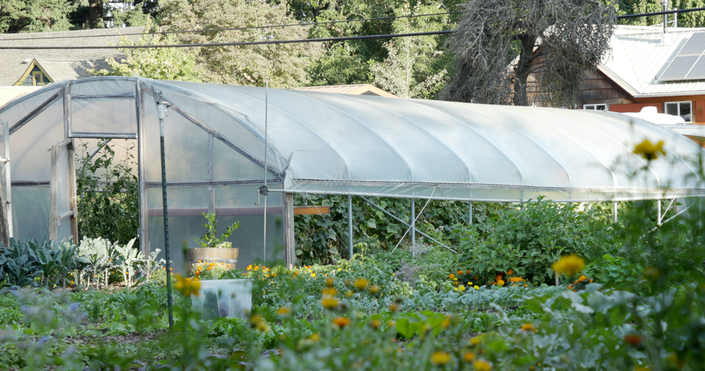
Are you interested in commercial
farming in the city? Or are you an urban planner or urban agriculture
advocate who wants to create better support for urban farms in your
city? The courses in this series titled,
The Promise of Urban Agriculture
are designed to help you understand the practices and policies that
support commercial urban farming. We use the term 'commercial' to
include any farm that sells products to support some or all of the
farm's activities.
This course, "Urban Farm Planning and Management" covers
factors that contribute to an economically viable urban farm, including
choosing a business model, knowing when to expand the farm, crop
planning, analyzing markets, managing on-farm labor, and promoting a
strong farm culture.
Target Audience
Aspiring/Beginner – This course is directed at farmers with a few seasons of food production experience in either an urban or rural setting. It assumes participants know how to plant, grow, and harvest a crop and are looking for guidance to make their urban farm a success.
Course Objectives
Upon completing "Urban Farm Planning and Management," you will be able to:
- Evaluate business models and revenue strategies that apply to for-profit and nonprofit farms
- Develop a market strategy to maximize profits
- Create a crop plan that matches your goals
- Decide when to scale up an enterprise or the entire farm
- Compare different sources of urban farm labor
- Create a positive environment for you and others working on the farm
Course Schedule
This course is self-paced and happens on your own time, with videos, readings, and assignments here in Teachable, our virtual classroom.
Your Instructor

Martin Bailkey, PhD, is a Special Projects Manager at Rooted.
Yolanda Gonzalez is an Urban Agriculture Specialist with Cornell Cooperative Extension Harvest NY.
Anu Rangarajan, PhD, is the Cornell University State Fresh Market Vegetable Specialist and Director of the Cornell Small Farms Program.
The Promise of Urban Agriculture courses
were created in fulfillment of a cooperative research agreement
(20-TMMSD-NY-0005) between U.S. Department of Agriculture’s Agricultural
Marketing Service (USDA AMS), Cornell University Small Farms Program,
and Rooted WI, Inc. (dba Rooted). Its contents are solely the
responsibility of the authors and do not necessarily represent the
official views of the USDA.

Frequently Asked Questions
Online Course Tiered Pricing
The Cornell Small Farms Program offers a tiered pricing model to provide greater access to our online courses. To determine your course enrollment cost, please consult the chart below, and honestly identify your current financial situation.
We
realize that not everyone is able to afford the price of our courses,
so we also offer a small number of scholarships each year to New York
State residents. To apply, please
read scholarship requirements and complete the application here.
